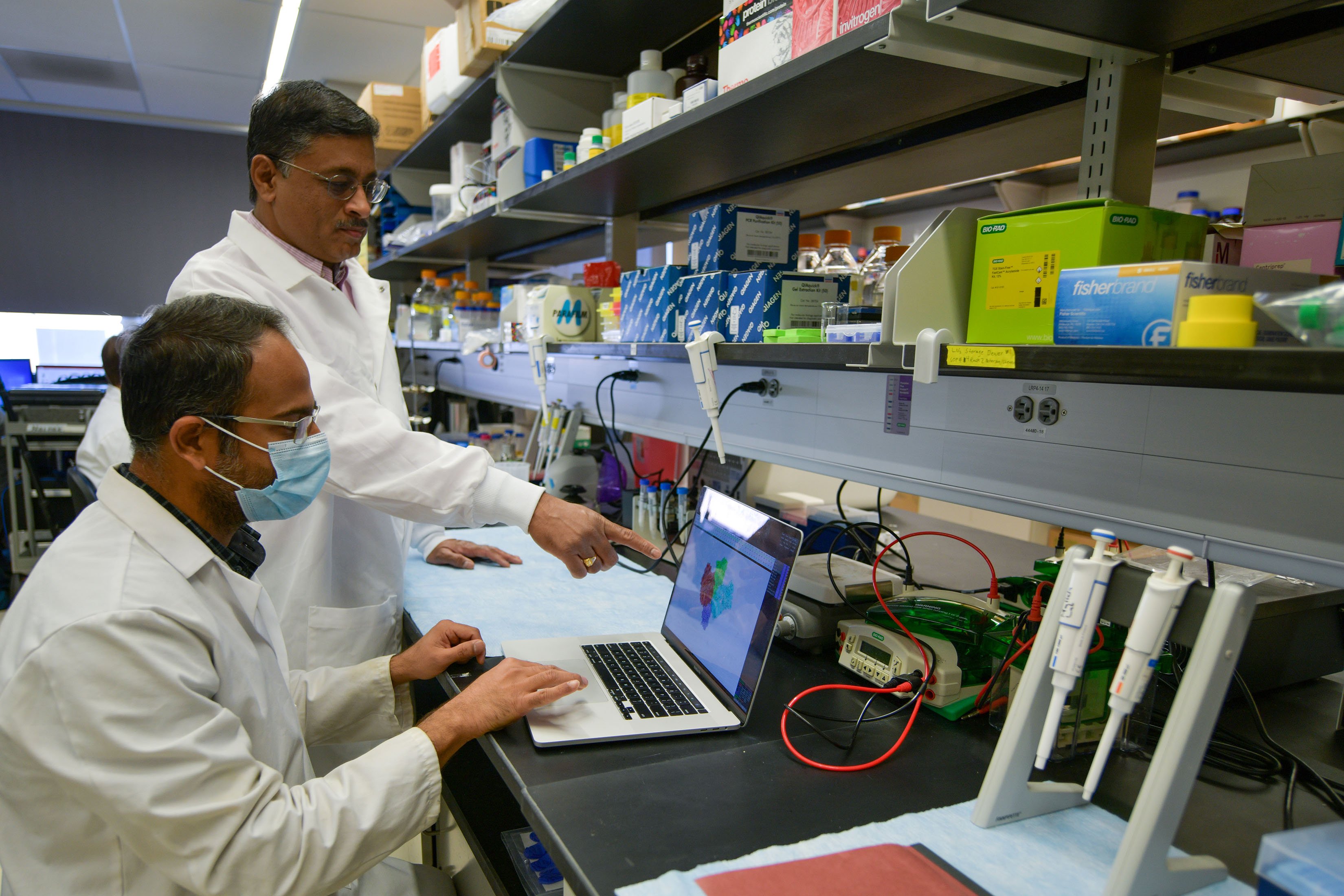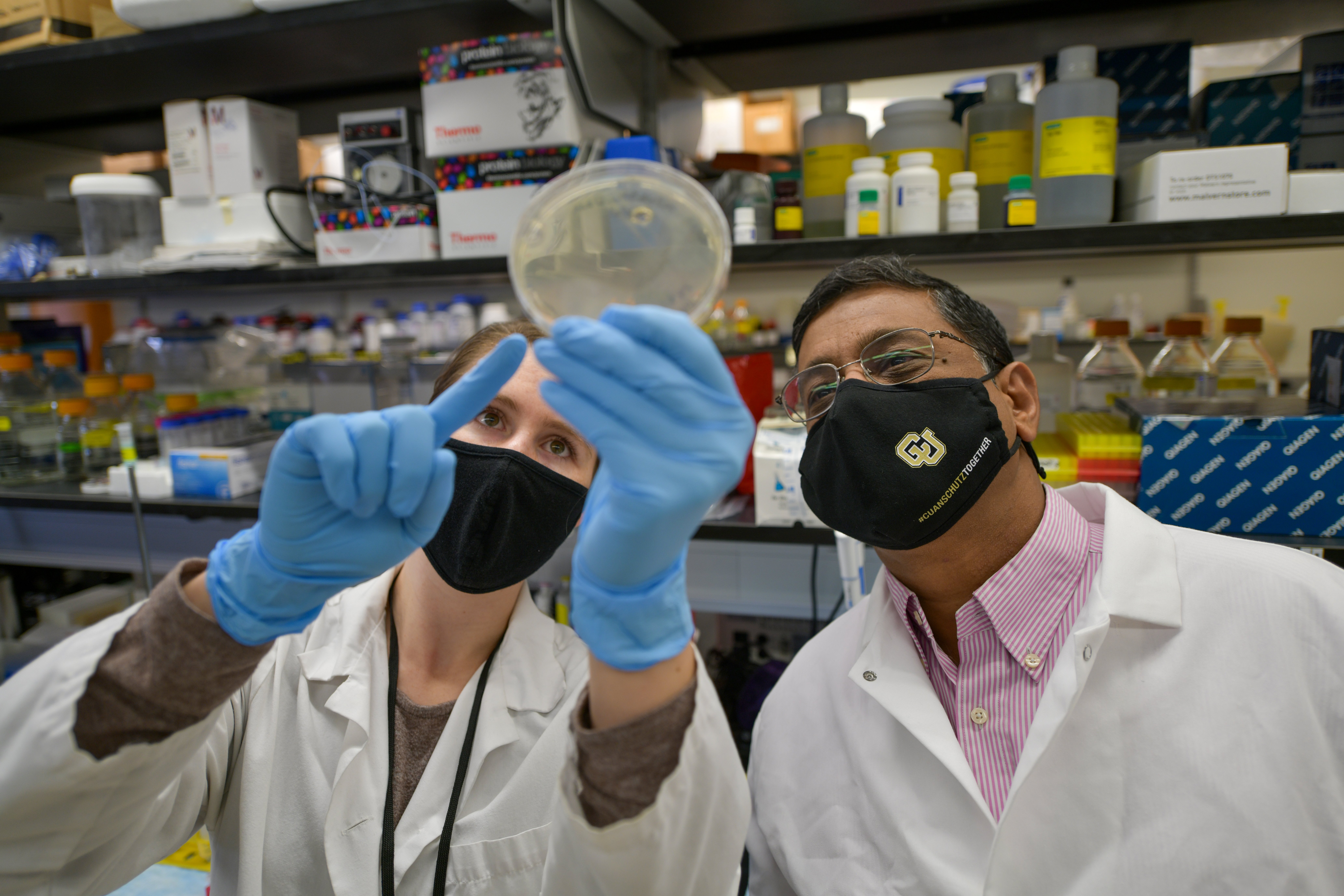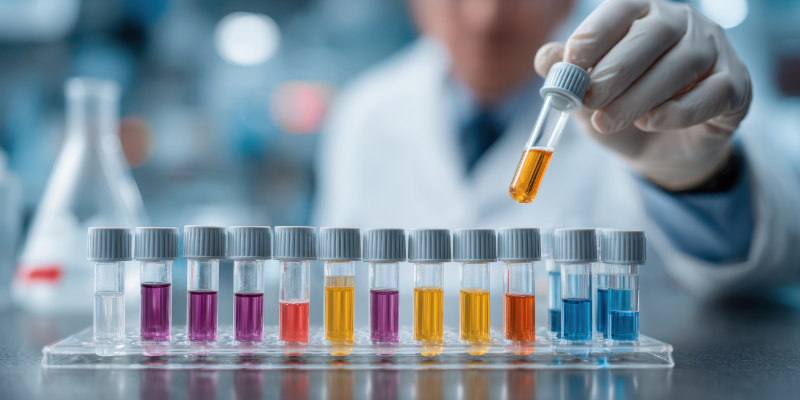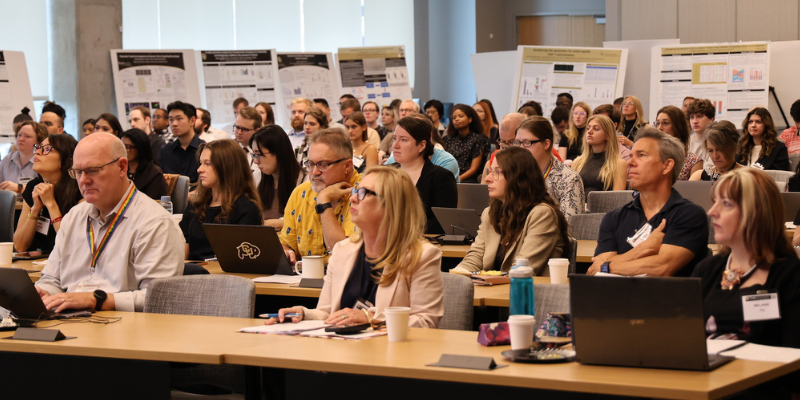Throughout the pandemic, we have struggled to get ahead of COVID-19. Now, with research from the Mallela Research Lab at the Skaggs School of Pharmacy and Pharmaceutical Sciences, scientists can take steps to be proactive instead of reactive – and possibly predict how the virus will act next.
Dr. Krishna Mallela, PhD, along with his research team on campus, Dr. Vaibhav Upadhyay, PhD, and PhD student Alexandra Lucas, published an article this fall in the prestigious Journal of Biological Chemistry (JBC) based on their research on the evolution of mutations in SARS-CoV-2, the virus responsible for COVID-19. Their article, “Receptor binding, immune escape, and protein stability direct the natural selection of SARS-CoV-2 variants”, is gaining national attention for its findings and their research illustration is featured on the November cover of JBC.
“SARS-CoV-2 variants pose a major challenge for devising measures to counter the virus threat, as new variants continue to emerge, some of which are believed to be more infectious than the wildtype [original] virus,” they wrote.
Simply put, if Mallela and his team can predict how the virus will mutate, researchers can develop new treatments, vaccines, and plans to counter its deadly path.
Both SARS-CoV (responsible for Severe Acute Respiratory Syndrome) and SARS-CoV-2 enter the human body through interaction of its spike protein. The Mallela Lab, already a leader in researching protein stability and aggregation of disease-related and model proteins, was uniquely positioned to take on this work to combat the pandemic.

Drs. Vaibhav Upadhyay and Krishna Mallela work in the Mallela lab. Their team is responsible for groundbreaking research on COVID-19 variants. |
“We were set back,” Mallela said. “The beginning of this pandemic we were all set back, we could not be in the lab. But when we got back to work in person, we knew we could do this research [with what they already had in place].”
Upadhyay, a post-doctoral researcher, explained that they use human kidney cells to test variants of SARS-CoV-2 and its protein expression because it closely matches the natural infection scenario. But why, and how, does SARS-CoV-2 mutate in the first place?
Viruses, like other life forms, mutate to stay alive. SARS-CoV-2 is an RNA virus, and we encounter RNA viruses fairly regularly, including the common cold and influenza, as well as more serious viruses such as HIV and hepatitis C. Some mutations occur to escape treatment. When a host, in this case a person, has low resistance to the virus it seizes the opportunity to change. Sometimes, these changes can make the virus more lethal or more contagious.
This is why, Mallela said, it is important to be vaccinated. When SARS-CoV-2 encounters a strong immune response, it loses its opportunity to mutate.
It was, and is, incredibly important to the team that their work be able to be replicated, reviewed, and published in reputable journals; and that it be simplified so that anyone can understand what they are doing.

Dr. Mallela and PhD student Alexandra Lucas collaborate on COVID-19 research. |
“We are scientists,” Mallela explained, “and it is very important right now that people are able to trust the science.”
So, when Discover Magazine called to talk about their work, Mallela was happy to do it. In ‘How COVID-19 Variants Could Outsmart Vaccines,’ the team explained how SARS-CoV-2 is so tricky.
“On the surface of a human cell, the virus binds with its spike protein to the human ACE2 enzyme and “unlocks” it to gain entry,” Discover reported.
The Mallela team says variants appear to be tweaking the protein structure in order to tightly bind with ACE2 and escape neutralizing antibodies. They also say that they will continue their valuable work, and to expect more papers on their research.
“We report the facts,” Mallela said. “And the medical community can respond.”



